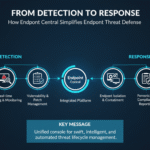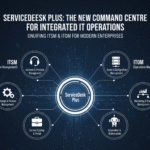Harnessing Digital Solutions for Enhanced Real Estate Business Success
- 1 Digital Solutions for Enhanced Realty Business Success
- 1.1 Streamlining Operations with Digital Tools
- 1.2 Enhancing Customer Experiences through Digital Engagement
- 1.3 Security and Privacy in the Digital Realty Landscape
- 1.4 Digital Marketing Strategies for Realty Success
- 1.5 Automation for Increased Efficiency
- 1.6 Embracing Virtual Collaboration and Communication
- 1.7 Continuous Learning and Adaptation in a Dynamic Digital Landscape
- 2 Conclusion
In today’s dynamic business landscape, the real estate industry is transforming, embracing digital solutions to elevate its operations and outcomes. This guest post delves into how harnessing digital solutions can propel real businesses toward unprecedented success. From streamlined processes to enhanced customer experiences, the potential is vast, and businesses that effectively leverage these tools are poised to thrive in the competitive real estate arena.
Digital Solutions for Enhanced Realty Business Success

Streamlining Operations with Digital Tools
One of the primary advantages of integrating digital solutions into real estate operations is streamlining essential processes. Efficient digital tools now replace traditional paperwork and manual tasks that once consumed considerable time and resources.
From property management software that automates listing updates to customer relationship management (CRM) systems that organize and optimize client interactions, these solutions empower real estate professionals to focus on what matters most – building relationships and closing deals. The seamless integration of CRM for real estate agents expedites mundane tasks and minimizes errors, ensuring a smoother and error-free workflow.
In addition, leveraging roadmapping software can help real estate firms strategically plan their digital transformation journeys. By visualizing project timelines, technology adoption phases, and operational milestones, teams can align objectives and ensure a cohesive, forward-thinking approach to innovation.
Additionally, cloud-based platforms have emerged as game-changers, allowing realtors to access vital information anytime, anywhere. Whether updating property details on the go or collaborating with team members remotely, the cloud fosters agility in real estate operations. This increased flexibility enhances productivity and enables realty professionals to respond promptly to client needs, cultivating a reputation for reliability and efficiency.
Enhancing Customer Experiences through Digital Engagement
In the digital age, customer expectations are evolving, demanding personalized and immersive experiences. Digital solutions play a pivotal role in meeting and exceeding these expectations in the real estate realm. Virtual property tours, for example, have become instrumental in providing potential buyers with an immersive experience without needing physical visits. High-quality visuals, interactive floor plans, and 360-degree views enable clients to envision themselves in the property, significantly expediting decision-making.
Moreover, leveraging data analytics and artificial intelligence allows real estate professionals to gain valuable insights into customer preferences. This data-driven approach enables targeted marketing strategies, ensuring clients receive information about properties that align with their needs and preferences. The result is a more personalized and engaging client experience, fostering trust and loyalty.
Security and Privacy in the Digital Realty Landscape
As digital solutions become integral to the real estate industry, ensuring the security and privacy of sensitive information is paramount. Cybersecurity threats pose a significant risk, and realty businesses must implement robust measures to safeguard client data and financial transactions. Encryption protocols, secure cloud storage, and regular cybersecurity audits are essential to a comprehensive security strategy.
Additionally, the adoption of blockchain technology holds promise in enhancing security in real estate transactions. Blockchain’s decentralized and tamper-resistant nature provides a transparent and secure platform for property transactions, reducing the risk of fraud and ensuring the integrity of the entire process. By prioritizing security and privacy, real estate businesses protect their clients and fortify their reputation as trustworthy and responsible entities in the digital landscape.
Digital Marketing Strategies for Realty Success
An online presence is crucial for real estate success in the digital age. Digital marketing strategies empower realty businesses to reach a wider audience and engage with potential clients. Social media platforms, search engine optimization (SEO), and email marketing are powerful tools for creating brand awareness and driving leads.
Social media, in particular, provides a platform for real estate professionals to showcase properties, share industry insights, and engage directly with clients. By crafting compelling digital marketing campaigns, realty businesses can position themselves as industry leaders and stay top-of-mind in the competitive market.
Automation for Increased Efficiency
Automation is a cornerstone of efficiency in the modern real estate landscape. Real estate professionals can allocate more time to strategic activities that require a personal touch by automating repetitive tasks. Automated email campaigns, appointment scheduling, and document management systems reduce manual workload, ensuring no crucial leads or tasks fall through the cracks.
This enhances productivity and contributes to a more positive and organized customer experience. Embracing automation allows real estate professionals to stay agile and responsive in a fast-paced industry, ultimately leading to enhanced business success.
Embracing Virtual Collaboration and Communication
The advent of digital solutions has redefined the way real estate professionals collaborate and communicate. Virtual collaboration tools, such as video conferencing platforms and project management software, facilitate seamless communication among team members, regardless of geographical location.
This enhances teamwork and contributes to a more collaborative and efficient work environment. Virtual communication tools are also crucial in staying connected with clients, providing updates, and addressing queries in real time. Communicating effectively digitally is vital to success in contemporary real estate.
Continuous Learning and Adaptation in a Dynamic Digital Landscape
The digital landscape is ever-evolving, and real estate professionals must embrace a culture of continuous learning and adaptation to stay ahead. Keeping abreast of the latest technological trends, industry regulations, and market dynamics is essential for sustained success. Online courses, webinars, and industry conferences provide valuable opportunities for professionals to upskill and stay informed. By fostering a continuous improvement mindset, realty businesses can position themselves as forward-thinking and innovative, gaining a competitive edge in a landscape where adaptability is critical to long-term success.
Conclusion
In conclusion, the digital era offers unprecedented opportunities for honest businesses to thrive and excel. By embracing digital solutions, real estate professionals can streamline operations, enhance customer experiences, and fortify the security and privacy of transactions. As the industry continues to evolve, those who harness the power of technology are not only future-proofing their businesses but also setting new standards for success in the dynamic and competitive world of real estate.

















